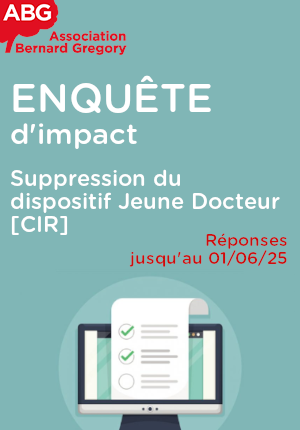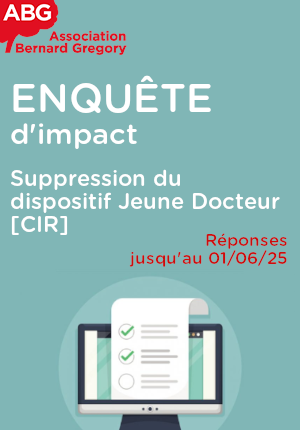Plant-based hydrogels and emulgels: Impact of correlation length on sensory perception
| ABG-131964 | Sujet de Thèse | |
| 14/05/2025 | Financement de l'Union européenne |
- Chimie
- Physique
Description du sujet
The Doctoral Network “Edible Soft Matter” (ESM), funded by the European Union in the frame of the Marie Sklodowska-Curie Actions (MSCA) funding programme is an international, interdisciplinary, and cross-sectoral network gathering leading experts in basic and applied soft matter and food sciences.
The objective of this 48-month project, starting from 1st March 2025 is to train and develop the employability of a new generation of young researchers, regulators, consultants and project leaders by providing them with a unique expertise in the design, production and quality assessment of innovative plant-based food products.
The consortium includes eleven Beneficiaries from seven countries (including three from the non- academic sector) who will each recruit at least one Doctoral Candidate and twelve Associated Partners (including four from the non-academic sector) with worldwide recognised and complementary expertise.
18 Doctoral Candidates will be recruited and trained in the frame of the ESM project. Through the implementation of an Individual Research Project (IRP) and the network-wide training activities, characterized by a strong involvement of the non-academic partners of the project, the Doctoral Candidates will develop the hard and soft skills needed to face the current challenges related to food and environmental transitions.
The ESM project is organised in seven work-packages (WP) including four research-based WP and three transversal WP dedicated respectively to Doctoral candidates training (WP5), Communication, dissemination & exploitation of the project results (WP6) and to Project management and coordination (WP7). The research-based WP unravel basic scientific questions to address the essential food-related research objectives: Plant-based Ingredients (WP1), Assemblies and Interactions (WP2), Multiscale Structuring (WP3) and Towards Innovative Manufactured Foods (WP4). The scientific objectives of the project will be achieved through the implementation of 18 Individual Research Projects (IRP).
IRP18: PhD position in: "Plant-based hydrogels and emulgels: Impact of correlation length on sensory perception"
Supervision:
Main supervisors: Christophe Chassenieux (France) and Amparo Tarrega (Spain)
Co-supervisor(s): Taco Nicolai (France) and Laura Laguna (Spain)
Objectives:
The project is a joint thesis supervision between France and Spain (CNRS Le Mans -France- and CSIC Valencia -Spain-). Its main objective is to design and formulate hydrogels and emulgels based on plant-based ingredients whose textures (structural and mechanical properties) will be varied in order to assess its influence on its sensory perception. The first model formulations will only consider plant proteins derived from rapeseed and will be compared with more standards ones based on dairy proteins keeping structural properties the same for a sake of comparison. Then the formulations will be gradually complexified by adding starches with varying origin and composition. Last, we will consider raw flour of varying sources to get closer to real food. Sensorial perception (flavour and texture) will be assessed using a range of implicit and explicit methodology which required respectively trained or naïve panellists. In the latter case, we will focus on implicit biometric methods (pupil dilation, heart beat, galvanic skin response, neural response).
Expected results:
Formulation of hydrogels and emulgels with varying correlation lengths using plant-based ingredients.
Investigation of their structural and mechanical properties at low and high deformation.
Assess the influence of the correlation length of plant-based hydrogels and emulgels on the flavour and texture sensations perceived during consumption.
Modelling the relationship between sensory properties and the implicit and explicit response of consumers response
Planned secondments
Bel, Dr Peggy Thomar, 2 months, mechanical study of the hydrogels and emulgels under strong deformation.
Prise de fonction :
Nature du financement
Précisions sur le financement
Présentation établissement et labo d'accueil
The Centre National de la Recherche Scientifique (CNRS) is the largest public research organisation in France, accounting for around 1 100 services and/or research units throughout the country. As a multidisciplinary institution, it covers all fields of scientific research driving various programmes and actions designed to address society and industry expectations. The CNRS encourages collaborative projects and provides a strong administrative support to such projects.
Site web :
Etablissement délivrant le doctorat
Profil du candidat
MSc or equivalent in food sciences or in physics or physical chemistry of soft matter science or with a solid training in rheological and structural investigations of soft materials or in sensory studies. A degree with distinction is a plus.
Scientific interest, dedication to research and career goal to work in food or soft matter sciences (academia or research center), or food industry.
Appreciation for interdisciplinarity and proactive drive to collaborate across fields
Proficiency in English, good communication skill and social competence
Vous avez déjà un compte ?
Nouvel utilisateur ?
Vous souhaitez recevoir nos infolettres ?
Découvrez nos adhérents
 SUEZ
SUEZ  TotalEnergies
TotalEnergies  Laboratoire National de Métrologie et d'Essais - LNE
Laboratoire National de Métrologie et d'Essais - LNE  Nokia Bell Labs France
Nokia Bell Labs France  PhDOOC
PhDOOC  CASDEN
CASDEN  ASNR - Autorité de sûreté nucléaire et de radioprotection - Siège
ASNR - Autorité de sûreté nucléaire et de radioprotection - Siège  ANRT
ANRT  Tecknowmetrix
Tecknowmetrix  MabDesign
MabDesign  Généthon
Généthon  Ifremer
Ifremer  Groupe AFNOR - Association française de normalisation
Groupe AFNOR - Association française de normalisation  CESI
CESI  Aérocentre, Pôle d'excellence régional
Aérocentre, Pôle d'excellence régional  MabDesign
MabDesign  ONERA - The French Aerospace Lab
ONERA - The French Aerospace Lab  Institut Sup'biotech de Paris
Institut Sup'biotech de Paris  ADEME
ADEME







